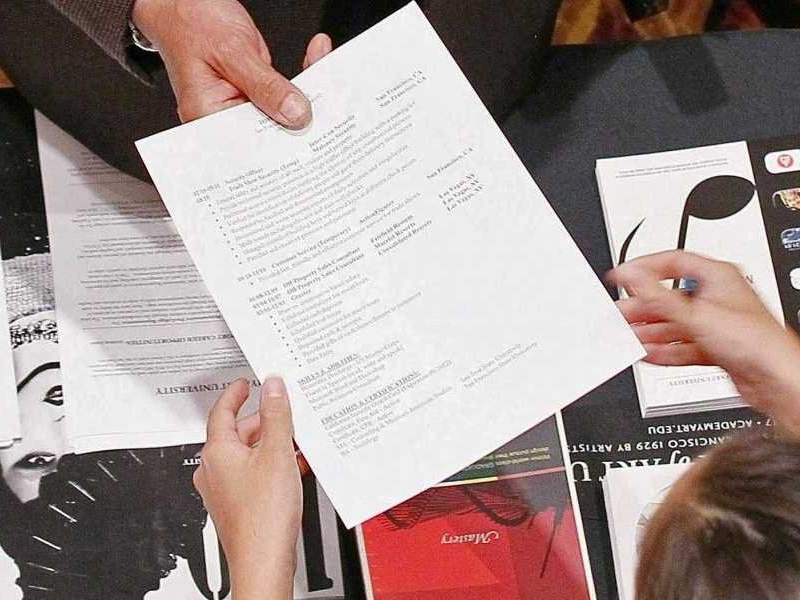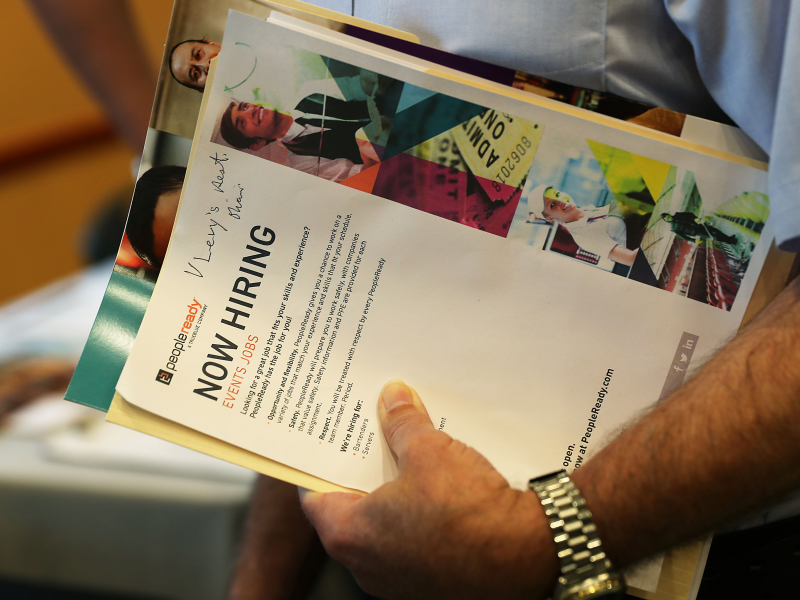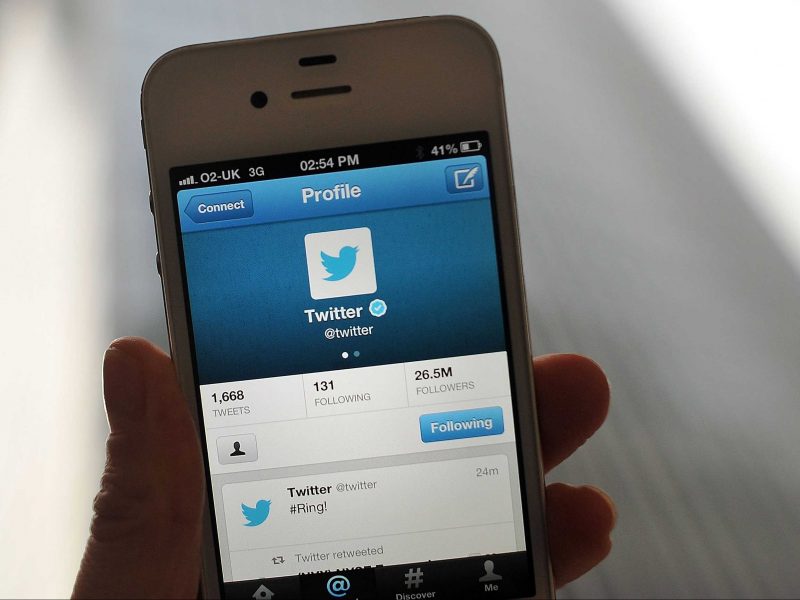- When it comes to preparing for a job interview, anticipating which questions you’ll be asked is the first step.
- Glassdoor sifted through tens of thousands of interview reviews to find the questions hiring managers most frequently ask.
- You should be prepared to tell your interviewer your greatest strengths and weaknesses, salary requirements, and more.
- Visit Business Insider’s homepage for more stories
You’ve heard it a million times: Practice makes perfect.
That’s especially true when it comes to interviewing for jobs.
The very best thing you can do is prepare. And the best way to prepare is to think about and rehearse (but not memorize!) responses to the questions you’ll most likely be asked.
Not sure what those will be? The online jobs and career community Glassdoor sifted through tens of thousands of interview reviews to find the questions hiring managers most frequently ask.
Some of these common questions could pop up in your next job interview.
1. What are your strengths?

This is your chance to highlight your most appealing attributes and anything that isn't on your resume.
2. What are your weaknesses?

Don't panic when you're asked this dreaded question. Read this article to learn how to tackle it.
3. Why are you interested in working for [insert company name here]?

Be honest, but don't mention things like the great vacation policy or the awesome free snacks.
4. Where do you see yourself in five years? 10 years?

Dale Kurow, a New York-based executive coach, says that your response to this question can tell the company if you have the requisite work ethic, attitude, and loyalty to be a good hire in the long term.
5. Why do you want to leave your current company?

Whatever you do, don't bad-mouth your former employer or boss.
6. Why was there a gap in your employment between [insert date] and [insert date]?

Be honest and upfront. Use this as an opportunity to talk about the skills you picked up while you were out of the job market, such as going back to grad school.
7. What can you offer us that someone else can not?

This is your chance to tell the employer what sets you apart from everyone else.
8. What are three things your former manager would like you to improve on?

This is similar to the "weaknesses" question. Focus on skills or traits that would not affect your ability to get this job done.
9. Are you willing to relocate?

Be honest! You'll regret it if you're not.
10. Are you willing to travel?

Again, be honest - and use this opportunity to ask how much travel would be involved in the job.
11. Tell me about an accomplishment you are most proud of.

Focus on an accomplishment that this employer will appreciate or be impressed by. Keep it relevant.
12. Tell me about a time you made a mistake.

Tread carefully. Try to focus more on what you learned from the mistake than the gaffe itself.
13. What is your dream job?

Choose something that is related to the job you're applying for. If that's not the truth, you should reconsider pursuing this role.
14. How did you hear about this position?

This is a good time to talk about your connections: "My aunt actually works in your accounting department and always raves about what a great place this is to work. She told me about the opening."
15. What would you look to accomplish in the first 30 days/60 days/90 days on the job?

Don't be overly ambitious, but come up with some creative ideas and express how you'd add value to the company.
16. Discuss your resume.

Don't just read off the piece of paper. Really paint a picture for the hiring manager of how you got to where you are today.
17. Discuss your educational background.

Again, don't just run through a list of schools you attended or courses you took. Instead, explain how your education prepared you for the job at hand.
18. Describe yourself.

There are so many ways to approach this - and so many wrong ways. This article will help.
19. Tell me how you handled a difficult situation.

Walk the hiring manager through a challenge you've overcome at work, like an angry customer or crowded store if you're looking to work in retail.
20. Why should we hire you?

When interviewers ask this question, they want you to convince them that you're the best candidate for the job.
21. Why are you looking for a new job?

Once again, you want to be honest without bashing your previous boss or company.
22. Would you work holidays/weekends?

You want to seem committed but also know your boundaries.
23. How would you deal with an angry or irate customer?

This is an important one. Let the hiring manager know that you would handle any difficult situation professionally.
24. What are your salary requirements?

Talking about money can be awkward - and very tricky. What you say can have a significant impact on whether you can do the job and how much they offer you. Here are some steps you can take when answering any questions about salary.
25. Give a time when you went above and beyond the requirements for a project.

It's important to show a potential manager that you're willing to go the extra mile.
26. Who are our competitors?

This is another example of doing your homework and showing your interviewer that you're informed about the industry.
27. What was your biggest failure?

Try to maintain a positive attitude when answering this one. Again, focus on how you bounced back and what you learned from the experience. Explain how it helped you grow as a person and a professional.
28. What motivates you?

Let your answer to this one show the interviewer that you're passionate about your field.
29. What's your availability?

It's important to go into the interview knowing exactly when you'll be available to work. Most jobs list the expected hours, so make sure they align with your expectations and availability beforehand.
30. Who's your mentor?

This will say a lot about who and what you value - so be honest but thoughtful with your response.
31. Tell me about a time when you disagreed with your boss.

You definitely don't want to say you once got into an all-out feud with your boss, but telling your interviewer about a time you would have handled something differently and why can show your leadership capabilities.
32. How do you handle pressure?

Your interviewer will want to know how well you can handle a stressful situation.
33. What is the name of our CEO?

In other words, "Did you do your homework?"
34. What are your career goals?

This is the perfect time to talk about how you see yourself succeeding at this company and possibly moving up once you prove yourself in this role.
35. What gets you up in the morning?

Be sure to mention the things specifically related to the position that excite you and motivate you.
36. What would your direct reports say about you?

Focus on positive stuff, but be realistic and honest.
37. What were your bosses' strengths/weaknesses?

Again, be honest, but don't speak too ill of your former boss.
38. If I called your boss right now and asked him/her what is an area that you could improve on, what would he/she say?

Knowing this information means you care about your performance and are constantly seeking both positive and negative feedback from your manager to help you improve.
39. Are you a leader or a follower?

Both have their ups and downs, so don't feel like you have to say one or the other to impress your interviewer - just be prepared to positively explain why.
40. What was the last book you've read for fun?

This is a great way for the hiring manager to get to know you - and potentially be impressed if it's a book related to your industry.
41. What are your co-worker pet peeves?

When answering this one, remember that you don't want to sound like a whiny complainer or someone who is easily annoyed.
42. What are your hobbies?

The hiring manager wants to get a better sense of who you are, so it's important to think about which hobbies best showcase your strengths, passions, and skills - and then discuss only those in the interview.
43. What is your favorite website?

Be careful with this one. If you're interviewing with Facebook, for instance, you may not want to say "Twitter!"
44. What makes you uncomfortable?

Focus on something that wouldn't be part of your day-to-day should you get the job.
45. What are some of your leadership experiences?

Again, don't list them off. Instead, pick a few experiences you're especially proud of and talk about how you successfully led a team or made an impact.
46. How would you fire someone?

Walk the hiring manager through the process, but be sure to say that you'd first check in with your boss or HR to figure out if there are any specific steps you'd be required to take.
47. What do you like the most and least about working in this industry?

Be honest without insulting the employer or hiring manager.
48. Would you work 40+ hours a week?

Explain that you'd be willing to work beyond 40 hours a week, but that you also value your personal time with friends and family.
49. What questions haven't I asked you?

If there's anything you expected to answer and are prepared to talk about, now is the time to bring it up.
50. What questions do you have for me?

Take advantage of this opportunity. Asking questions is the best way to determine if you'd be happy working for this employer and whether your goals are aligned with theirs. Here's a list of 34 impressive questions to ask at the end of every job interview - if they weren't already answered.










